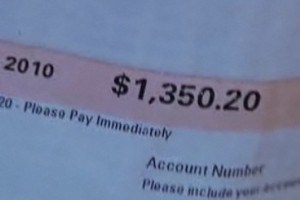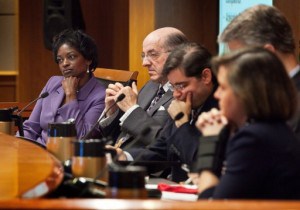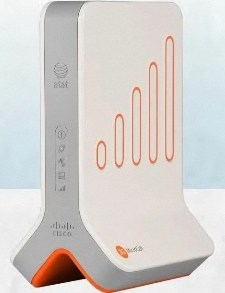Some Tennessee AT&T Customers Still Facing Outrageous Bills for “Unlimited” Long Distance That Isn’t
Back in April, Stop the Cap! covered the story of Clarksville, Tenn., resident Belinda Horton, who found herself besieged by endless billing errors from AT&T.
She was not alone. More than 15,000 customers in Tennessee alone have been suffering with an AT&T “unlimited” long distance calling plan that has billed every long distance call at non-plan rates. At one point, Horton found herself staring at a bill for $1,350.
As of late April, more than three thousand dollars in erroneous charges had appeared on her phone bill over several months, when she was only supposed to have paid a flat rate amount of $25 a month for unlimited long distance.
Horton did secure credits from AT&T, but only after repeatedly calling their customer service department after every inaccurate bill arrived.
For her and other Tennessee customers in the same boat, appeals to the Tennessee Regulatory Authority were supposed to fix the problem. AT&T’s legal counsel, Guy Hicks, apologized on behalf of the company and promised to make things right.
That lip service was apparently good enough for the TRA, which as we wrote at the time was just a bit premature:
It was disappointing to see the TRA praising AT&T at the end of Monday’s meeting. This is an ongoing nightmare for some customers, and TRA officials seemed all too ready to applaud the company for its promises to fix the problem while Tennessee residents continue to be overbilled. The time for praise comes after the company resolves the issue and every customer has been credited for every error. AT&T has promised it would resolve these billing problems for nearly a month, with complaints still arriving even as the Authority met.
Long time readers can guess what happened next.
Belinda dropped a note to Stop the Cap! informing us she had enough with AT&T and decided to switch to Charter Communications. But in one last indignity, her final bill from AT&T was loaded with inaccurate charges running over $100.
Now that Horton is a former AT&T customer, the company has been even less responsive than ever. The TRA is reportedly involving itself in the matter once again, although it’s clear AT&T doesn’t exactly feel threatened by the Authority.
Had AT&T done the right thing, they would have not only credited back the inaccurately billed long distance calls, they also would credit back the $25 a month Belinda paid for a long distance plan she had to fight every step of the way to actually receive. It’s the least the company could do for a customer who was forced to flee AT&T because they couldn’t resolve their own billing problems.
Belinda writes she has better things to do than spend endless hours fighting with the phone company. She has been devoting as much free time as possible caring for an ailing friend. Many people would have simply paid AT&T’s final bill just to be rid of them, but it was Belinda’s friend who encouraged her to stay in the fight and not pay AT&T one penny more than they deserve.
Stop the Cap! is attempting to get Horton in touch with the executive office customer service department at AT&T to get this resolved once and for all.


 Subscribe
Subscribe







